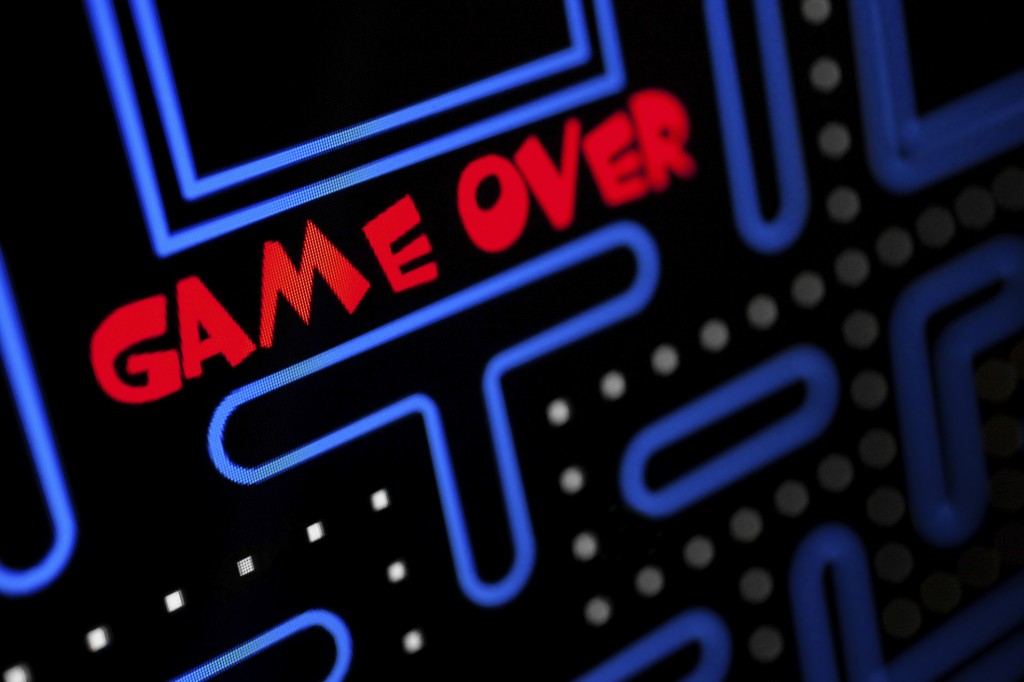Study: brain cognitive games are useless

The last decade has become popular commercial training and brain training programs. Trainers offer to improve cognitive abilities through daily work with various “brain games” that affect cognitive functions - memory, attention, and cognitive flexibility.
A recent study by the University of Pennsylvania showed that brain training with Lumosity - a popular application with educational games - not only does not affect decision making, but does not affect cognitive functions in any way.
One of the games Lumosity
To this conclusion, scientists did not come immediately. The study was initiated by the team of Joseph Cable (Joseph Kable), and Caryn Lerman, who tested the work of funds that, as stated, can quench people’s destructive impulsive habits, such as smoking and overeating. They analyzed whether commercial brain-training programs, through a stated beneficial effect on cognitive function, can reduce people's propensity for risky or impulsive choices.
Studies have shown that increased activity in the areas of the brain associated with decision-making may incline a person towards less risky and more useful decisions, for example, to refuse an additional piece of cake or choose a reward of $ 40 then instead of $ 20 now. There were hypotheses according to which brain training games potentially activate the same brain areas. Therefore, Cable and his colleagues have suggested that brain training can lead to wiser decisions and healthy behavior.
Cable's team conducted an experiment with two groups of volunteers, each of which included 64 healthy young people. One group was asked to follow the Lumosity regimen, doing exercises 30 minutes a day five days a week for 10 weeks. Another group adhered to the same schedule, but instead of training it played regular online games.
They were chosen to control all the coincidences of cognitive stimulation of regular and training games. Both groups were told that the study examines whether games improve cognitive functions and whether they influence the decision-making process or not. In previous studies, for example, for comparison, crosswords were used, because of which the brain stimulation took place in different ways.
To assess the impulsiveness of decision-making, scientists suggested that participants choose between small awards now or larger awards later. As a result of the experiment, it was found that the training did not cause any changes in brain activity or decision making during the execution of tasks.
Participants were also offered to undergo a series of cognitive tests, which were not part of the training, in order to check if the trainings had any influence on the decision making process. Investigated evaluated the activity of brain areas associated with executive function, using fMRI. For additional control, the team of scientists also had a separate group of 35 volunteers who passed the same cognitive tests as the previous 128 participants in the experiment, but did not play games.
Both groups began to play better games, but the researchers did not see changes in the participants 'neural activity and improvement in the volunteers' cognitive characteristics. Also, trainings and games did not affect the decision-making process - none of the proposed types of games changed the brain activity of the participants.
Researchers note limitations in their work, the most important of which lies in the youth and health of volunteers. Perhaps learning and training games may be useful for older people or people suffering from addiction or unhealthy behavior. The main thing is not to turn this assumption into an axiom without conducting relevant research. Luminosity had to pay $ 50 million in January 2016 for an unconfirmed research ad that company games could prevent memory loss, dementia and even Alzheimer's disease.
Despite the fact that cognitive training in itself did not bring the desired results, Lerman's data demonstrated that the combination of cognitive exercises with non-invasive brain stimulation enhances self-control in smokers. This group is now under the scrutiny of researchers.
Cable hopes to use some of the data from this study to better understand individual differences in decision making over time: why one person can be patient with some things and more impulsive to others, and why some people tend to choose an immediate reward. and others are deferred rewards.
The scientist is confident that if he and his team manage to understand the neural basis of these differences, then they will be able to understand which cognitive or neural interventions will be useful to help people be less or more impulsive. And although in their latest study it became clear that brain training does not in itself affect the decision-making process or cognitive abilities, they believe that this topic is worthy of careful study.
doi: 10.1523 / JNEUROSCI.2832-16.2017
All Articles